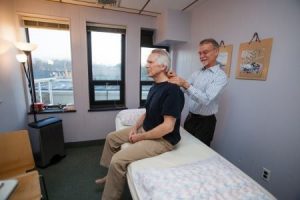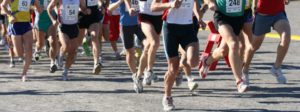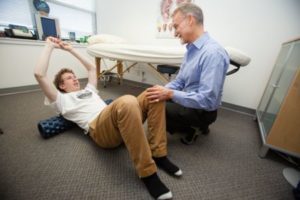Getting older can stink (and none of us are unsusceptible)! As a medical provider, it can be a real challenge to treat an older patient. More than half of adults age 65 or older have 3 or more medical problems, such as heart disease, diabetes, arthritis, Alzheimer’s disease, or high blood pressure. That’s not even taking into consideration the general aches of growing older and the devastating effects of mental decline.
But does getting older really have to stink? Not necessarily. For instance, an improvement in any one aspect of health can alter (or even reverse) the progression of other physical or mental issues. Personally, as I’ve aged, my annual physical indicators (vitals, lifestyle review, targeted lab testing, to name some) have stabilized or even continued to get better. The simple solution is to be vigilant in maintaining balance in all areas of life, such as regular exercise, good dieting, and time for rest, relaxation and enjoyment with those things most dear to us.
Further, holistic medicine can make a difference for maintaining better balance. It works by targeting the many facets of health, and it’s proving to be a viable treatment option and pain reliever for geriatric patients.
Acupuncture can help heart disease, diabetes, high blood pressure, and Alzheimer’s disease
Yes, it’s true! UCLA researchers found over 10 years ago that acupuncture treatment showed promising help in significantly lowering stress and improving heart function in the very sickest heart failure patients. Further comprehensive research is underway by the lead UCLA author, Holly Middlekauff, MD, to study “if acupuncture decreases adrenaline levels in heart failure, thereby potentially improving survival and quality of life.” Researchers also found “acupuncture equally effective for the treatment of hypertension as…a pharmaceutical medication used for the treatment of high blood pressure and angina.”
Additionally, Alzheimer’s can often be the largest culprit in compounding physical issues for geriatric patients. After all, if an older man can’t remember to take his heart medication, that can have serious repercussions.
But acupuncture can also play a role in improving health outcomes for those with declining mental capacities. “Two separate studies have shown that acupuncture may be able to help people with Alzheimer’s. In both studies, researchers found that acupuncture could improve the lives of people with the disease by increasing verbal and motor skills and improving their mood and cognitive function.”
Chronic back pain relief
Some common ailments are not even necessarily a sign of illness.
I wasn’t that “old” when I started experiencing chronic back pain, and it’s why I sought out acupuncture. Many geriatric patients experience chronic back pain. In fact, it’s the number 1 reason why people seek out acupuncture. And for good reason.
In 2016, a group of researchers in China studied 751 patients with low back pain. The study was carefully performed measuring each patient’s pain level and functional ability before and after acupuncture treatment. They found that acupuncture may have “a favorable effect on self-report pain and functional limitations in LBP [low back pain] patients.”
Also, in 2012, the New York Times reported that acupuncture in a comprehensive and rigorous analysis of 29 randomized trials involving 17,992 patients led by Dr. Andrew J. Vickers helped reduce back and neck pain, osteoarthritis, chronic headache, and shoulder pain.
There’s no shame in help for pain
If you’re starting to experience the pains of getting older, stop by at our Belmont or Brookline offices. We can talk through what’s bothering you and get you the help you need to reduce pain and prevent the early onset of illnesses.


